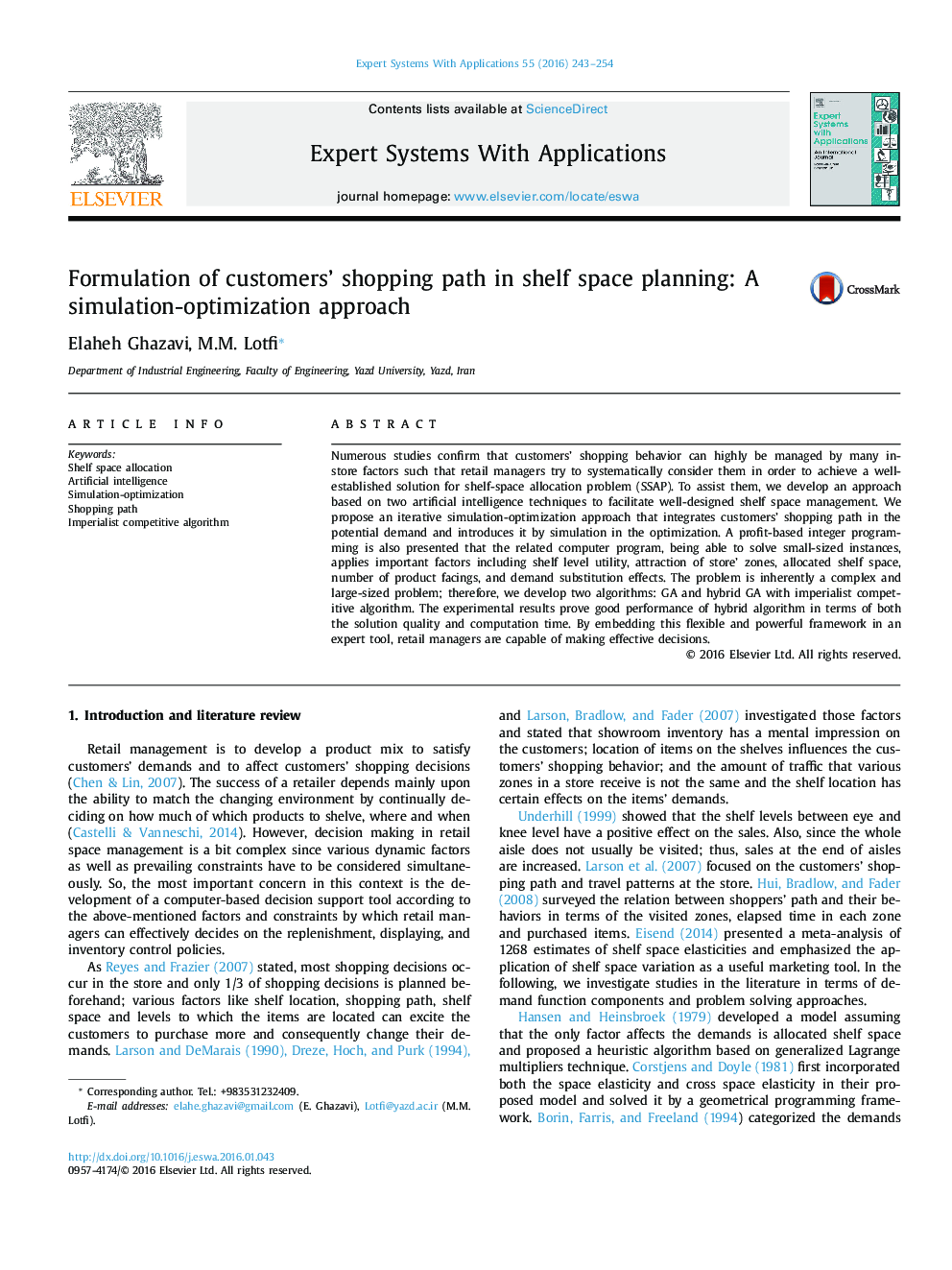| Article ID | Journal | Published Year | Pages | File Type |
|---|---|---|---|---|
| 383164 | Expert Systems with Applications | 2016 | 12 Pages |
•A computer-based expert tool is developed for better decision making of retail managers.•Customer shopping path is formulated in shelf space planning via a simulation-optimization approach.•Customers’ movements in the store are introduced into the customers’ demand function.•Fixed and random utilities for taking the attraction of zones in the store are addressed.•A hybrid algorithm of two artificial intelligence techniques is developed.
Numerous studies confirm that customers’ shopping behavior can highly be managed by many in-store factors such that retail managers try to systematically consider them in order to achieve a well-established solution for shelf-space allocation problem (SSAP). To assist them, we develop an approach based on two artificial intelligence techniques to facilitate well-designed shelf space management. We propose an iterative simulation-optimization approach that integrates customers’ shopping path in the potential demand and introduces it by simulation in the optimization. A profit-based integer programming is also presented that the related computer program, being able to solve small-sized instances, applies important factors including shelf level utility, attraction of store’ zones, allocated shelf space, number of product facings, and demand substitution effects. The problem is inherently a complex and large-sized problem; therefore, we develop two algorithms: GA and hybrid GA with imperialist competitive algorithm. The experimental results prove good performance of hybrid algorithm in terms of both the solution quality and computation time. By embedding this flexible and powerful framework in an expert tool, retail managers are capable of making effective decisions.
